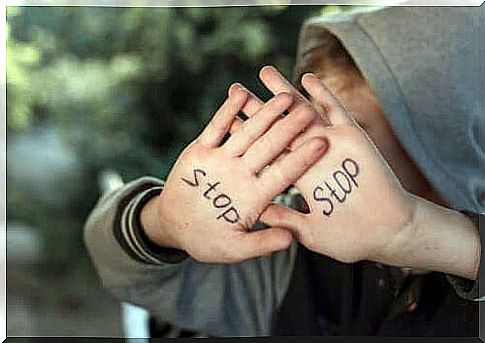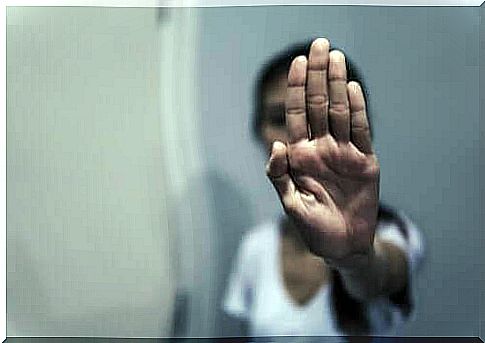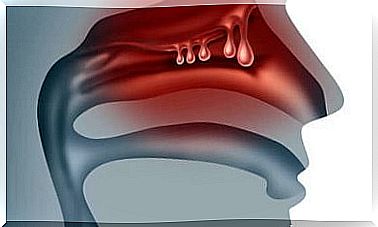Effects Of Emotional Abuse

Perhaps the effects of emotional abuse are not as obvious at first glance as those of physical abuse. However, its aftermath exists and lasts as long or even longer than that of physical violence. Yet it is difficult for many people to classify it as a form of abuse, mistreatment or violence.
Emotional Abuse
As the name implies, emotional abuse is a type of abuse that one person commits against another person. It can come in many forms, normally characterized by:
- Attitudes, actions, and words intended to humiliate or belittle another.
- insults.
- disapproval.
- Isolate the other person.
- to discredit.
Like physical abuse, emotional abuse is a form of violence and abuse. In this sense, it is aggression towards another person, usually verbal, where the abuser uses harmful expressions to try to humiliate or belittle the victim.
Since it’s not that easy to spot, it usually takes a long time, leaving the victim with very low self-esteem and self-esteem that may even lead them to believe that the abuser is telling the truth.
Psychological abuse has no preferences. In fact, it can happen to children, teenagers, adults or older people. In the same way, there is not one specific environment in which it occurs, meaning that it can happen in a family, between friends, in a relationship, at work, etc.
We must bear in mind that there may be witnesses to this kind of abuse. For example, children may witness incidents at home, or co-workers may see a boss belittling an employee in a degrading manner. This can also affect the emotional health of the witnesses.
Effects of Emotional Abuse

The abuser always tries to undermine his victim’s self-esteem, creating emotional dependence in the relationship. The consequences of prolonged emotional abuse are in many cases invisible. For this reason , it is very difficult to detect them, even for the victim of the abuse.
Low self esteem
Low self-esteem can be one of the causes of abuse, but also one of its consequences. That is, low self-esteem can be a factor that motivates the abuser to start abusing and at the same time, through abuse, diminish the victim’s self-esteem.
In fact , the weakness of the victim is one of the things that attracts abusers so that they will hit them where it hurts. The abuser will constantly repeat that the victim is worthless, belittling and humiliating her. At the same time, the victim will start to believe it, strengthening the dependency relationship.
Stress and Anxiety
People who are emotionally abused show high levels of stress and anxiety. This is mainly due to the fact that they cannot see what is really happening. In fact, they are often unaware that they are being mistreated and that the abuser’s behavior is not normal or acceptable.
Guilt
As we mentioned earlier, the victim has low levels of self-esteem and self-esteem, which are exacerbated by the abuser’s attacks. As a result, they can often blame themselves for the abuse. That is, they can then justify the abuse by saying that it is their fault.
Along these lines, especially in a relationship, the abuser begins to encourage the victim’s guilt, known as emotional blackmail.
Other Effects of Emotional Abuse

You should always report any form of abuse and pay attention to the possible consequences for the victim. There are instances of abuse where the effects can be even more severe than those we mentioned earlier. These include:
- Depression. A result of prolonged abuse and a lack of self-esteem.
- Suicidal thoughts. This happens in extreme cases, but unfortunately it happens and often because of bullying at school.
- Abuse of drugs or alcohol. Using these drugs can help victims avoid reality and overcome emotional abuse by refusing to see reality.
- Aggression. Anger and anger can build up and cause an aggressive personality. Especially in children, it can become a serious problem during adolescence and adulthood.
- Difficulty maintaining relationships with other people. The abuse, low self-esteem and lack of self-confidence can prevent the victim from maintaining healthy relationships with other people and prefer emotional isolation.
Conclusion
For all these reasons , emotional abuse should be considered as harmful as physical abuse. So it’s important to set boundaries and distance yourself from people or relationships who use abuse and report the situation as soon as possible.
In the case of children and adolescents, they depend on their parents or caregivers to notice the signs of emotional abuse in order to prevent worse.
If physical abuse must be reported, emotional abuse must also be reported. The victim should then enter therapy and the recovery process that will help restore her self-esteem and confidence.









